Why Should we as Localization professionals make time for Self-Reflection?
This year I am approaching my goals process differently. At the beginning of the year, I wrote the post This year, I don't have any goals, but I know who I want to be.
And as I explained, there has been an important change in how I approach my life, as my goals are more related to setting the direction and less to the obsession with reaching the destination or a specific result.
This, the best way I understood it was when I decided to lose a few kilos. Losing 10 kilos is a destination goal. Direction goal is getting up, having a coffee, and going to the gym.
Goals related to direction have a more long-term impact. That goal, sooner or later, leads me to lose the 10 kilos, plus it helps to change my lifestyle.
Regarding localization leadership skills, another direction goal I have incorporated in my practices is to have periods of reflection. This is something that I believe, as a localization industry professional, I have consistently failed to do during my career. It has taken me a while to realize that having goals is just as important as having periods of reflection.
I really liked an article I read in HBR Magazine in which they talked about how knowledge workers have a bias towards action. As a big soccer fan as I am, I thought it was perfect that they used a soccer metaphor to explain that the ability to reflect is one of the most undervalued leadership skills.
In this soccer study, they researched that goalkeepers choose their action in penalty kicks before they can clearly observe the kick direction. An analysis of 286 penalty kicks in top leagues and championships worldwide shows that given the probability distribution of kick direction, the optimal strategy for goalkeepers is to stay in the goal's center. Goalkeepers, however, almost always jump right or left. What's the best way to stop a penalty kick? Do nothing: just stand in the center of the goal and don't move.
If that's true, why do goalies almost always dive off to one side?
We are biased toward taking action. We want to show that we're doing something; otherwise, we look helpless, like we don't know what to do.
I think as professionals in the localization industry, we're a bit like goalkeepers, we're always moving!
By the nature of our work we are always jumping from one place to another; talking to marketing about some assets that we have to localize for the Brazil campaign, talking to Legal to localize the last documents needed to offer in-app purchases in Vietnam ... talking to developers because it turns out that the Turkish lira is not shown on the website of that country ... the professionals of a Localization team have many stakeholders, and this makes us always on the move. This is one of the reasons why it is difficult for us to have periods of reflection. Like soccer goalkeepers, we have a bias for action. But there are more reasons why we find it hard to stop and reflect on what is happening to us.
A few months ago, I decided to implement a habit in my way of working, which I call my weekly review.
This weekly review is my period of reflection on how the week has gone.
There I take the opportunity to think about my meetings, about the work I have done, about what I still have to do.
Click HERE to download the infographic
Why Localization professionals need self-reflection
Reflection allows the brain to pause amid the chaos, untwist and sort through observations and experiences. We pause and we start to consider multiple possible interpretations. That becomes things we learn and conclusions we reach, which help us improve future actions based on our learnings that appear when we stop to think.
The advantage of slowing down and stopping to think seems evident to me nowadays; in fact, my weekly review on Fridays is a sacred moment, a meeting I have with myself, it is on my calendar every Friday, and except in emergencies, it is a meeting I never cancel. But this was not always the case. And it was actually reflecting on why I was not particularly eager to reflect when I came to the following conclusions.
I hated the process
I was not too fond of the process because it made me feel very uncomfortable. It forced me to slow down, think, and face meetings or processes that I had put in place, which sometimes were messy and inefficient. When you stop to think, certain feelings of discomfort and vulnerability appear. And I didn't like that feeling; now I can't say I love it either, but I understand that when the feeling of discomfort disappears, the learning opportunity appears. And that is valuable.
What is the ROI of thinking?
Another reason I found it difficult to stop and reflect is that the ROI when we reflect is not very clear. If I stop for 60 or 90 minutes to reflect, it is difficult to see an immediate ROI from the action of thinking. Especially if I compare that hour with an hour I could be writing about, for example, best practices on content internationalization.
Bias toward action.
I didn't like to reflect because, like that goalkeeper in the soccer metaphor I mentioned above, reflection can feel like staying in the center of the goal and missing the action. I feel better when I do something, even when sometimes the best thing is to do nothing and review what we have done and learn from what we have done, both the good (this has to lead us to do more of it) and the bad (do less of it).
Good questions to reflect on
Over time, I have been improving the questions I ask myself in my weekly review, which helps me stay thinking.
The questions that have given me the best results in triggering my periods of reflection are these 3
How could I have been more effective in my team meeting (or any other important meeting I had during the week)?
How am I not helping or even hindering the progress of some of my stakeholders or team members?
What am I most proud of accomplishing this week? (I always end with this question being the last one to finish my reflection period with a good taste in my mouth)
In summary
The habit of reflection can build self-awareness, efficacy, and resilience. And resilience is precisely one of the most critical skills to develop for any professional in the localization industry.
Reflection as a leadership skill as part of the Localization community provides us with several benefits: it allows us to learn faster and get up to speed in new situations more quickly. It helps us not make the same mistake twice. And it's super practical to question our assumptions and make better future decisions.
@yolocalizo
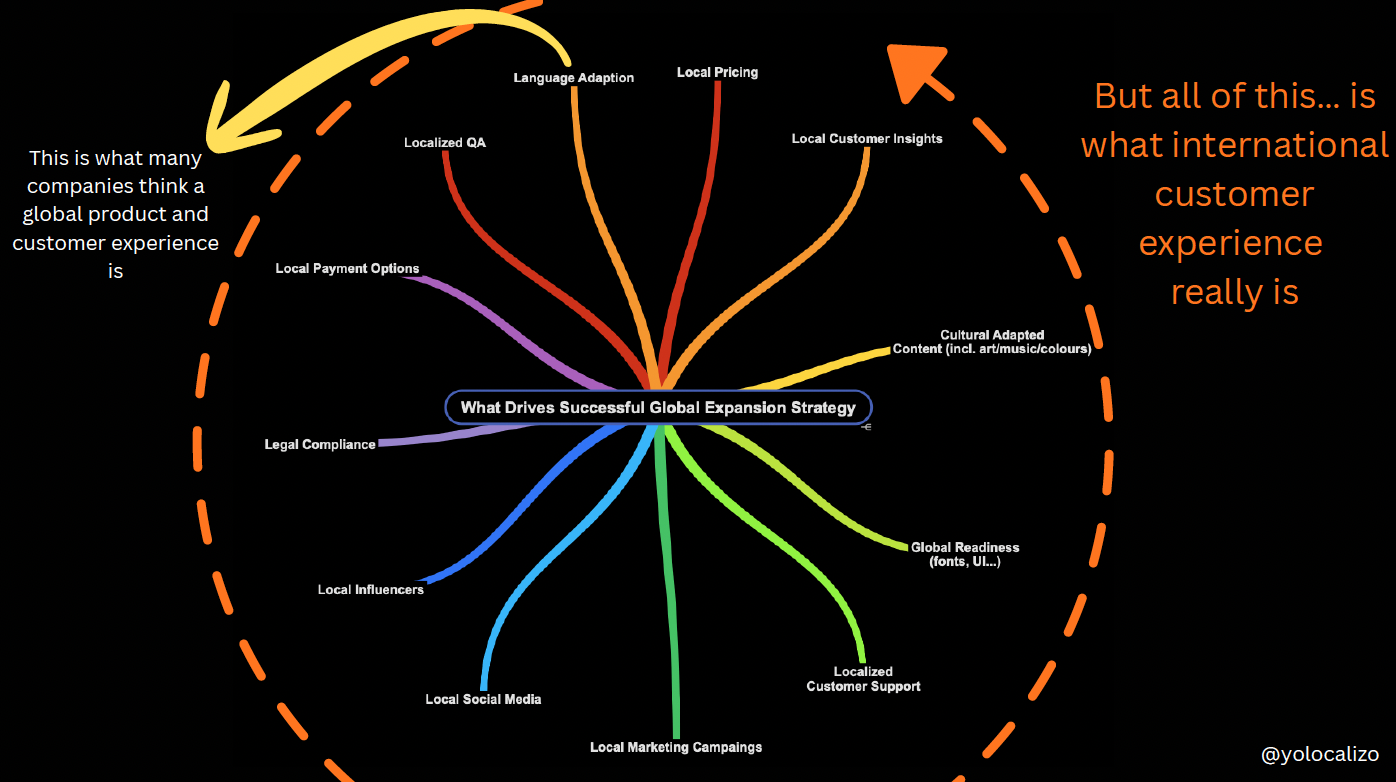
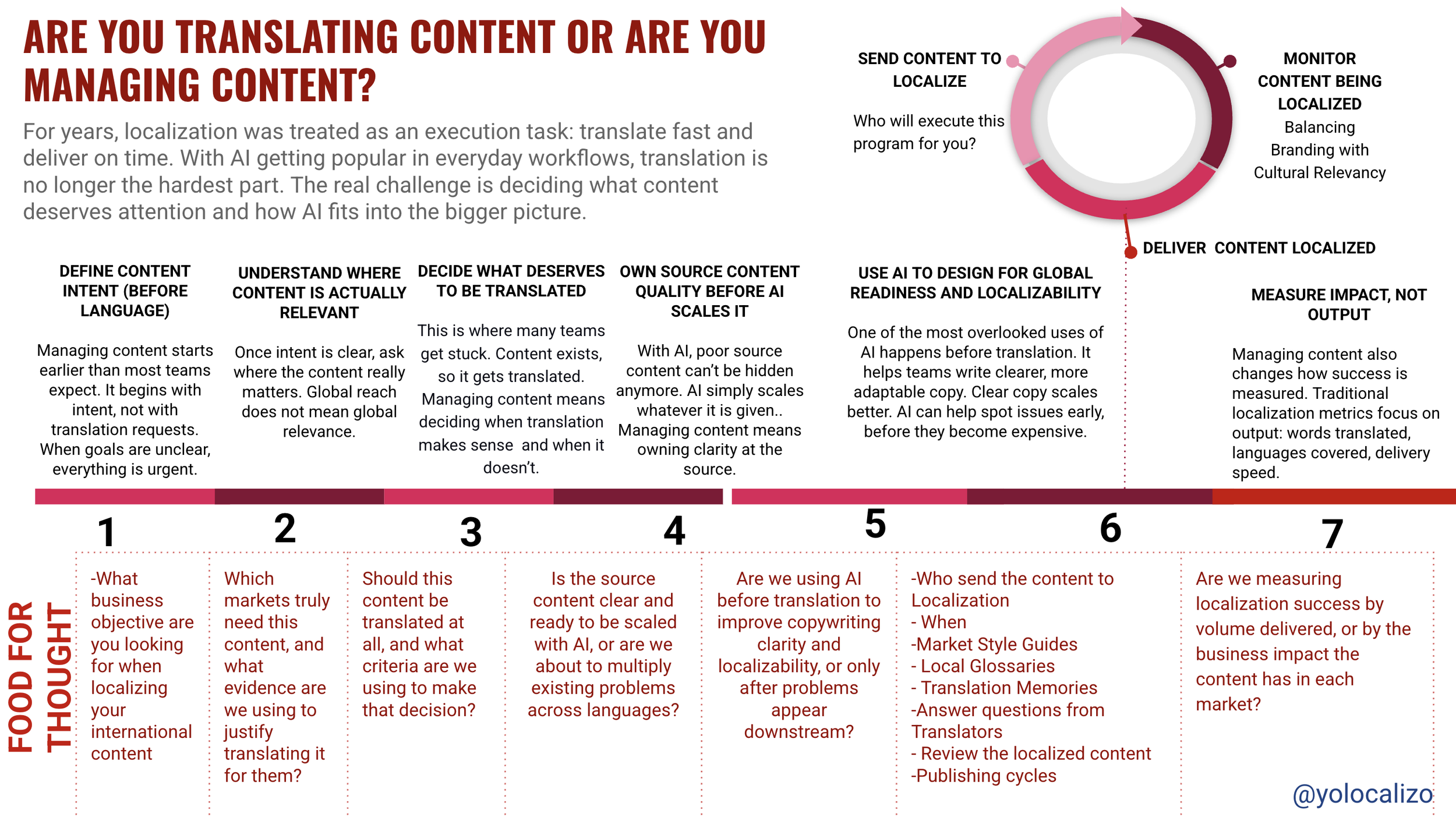

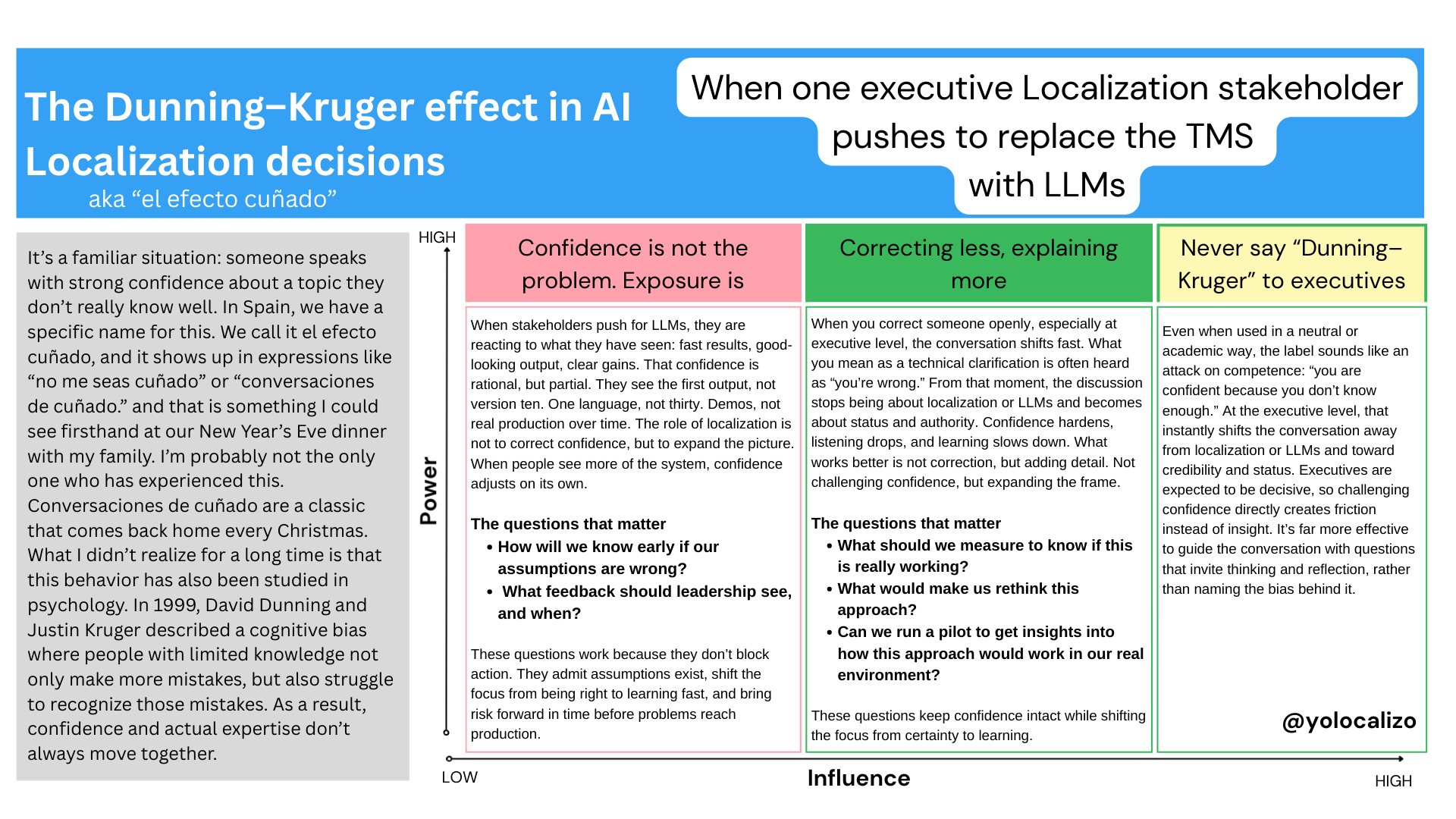


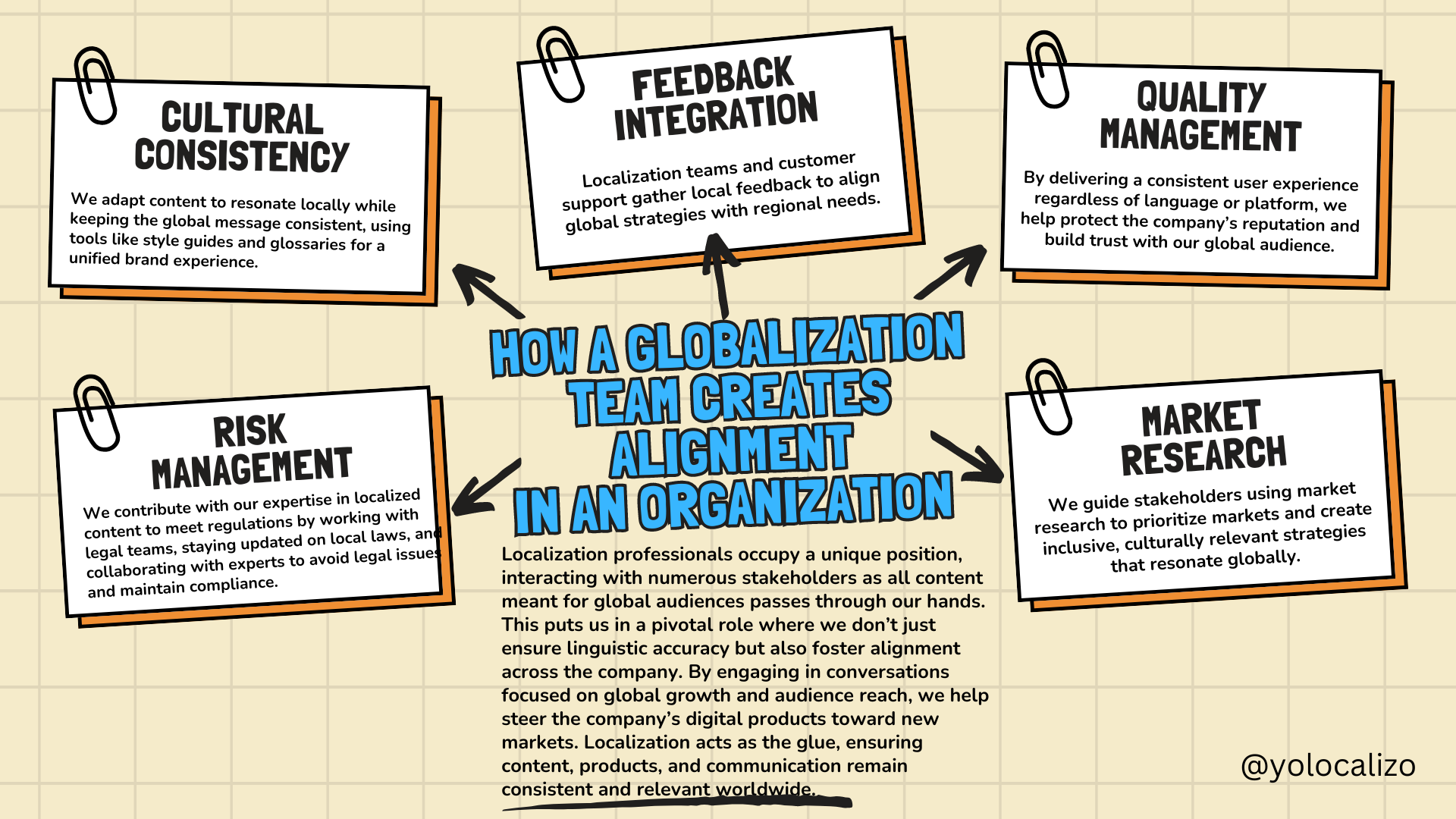
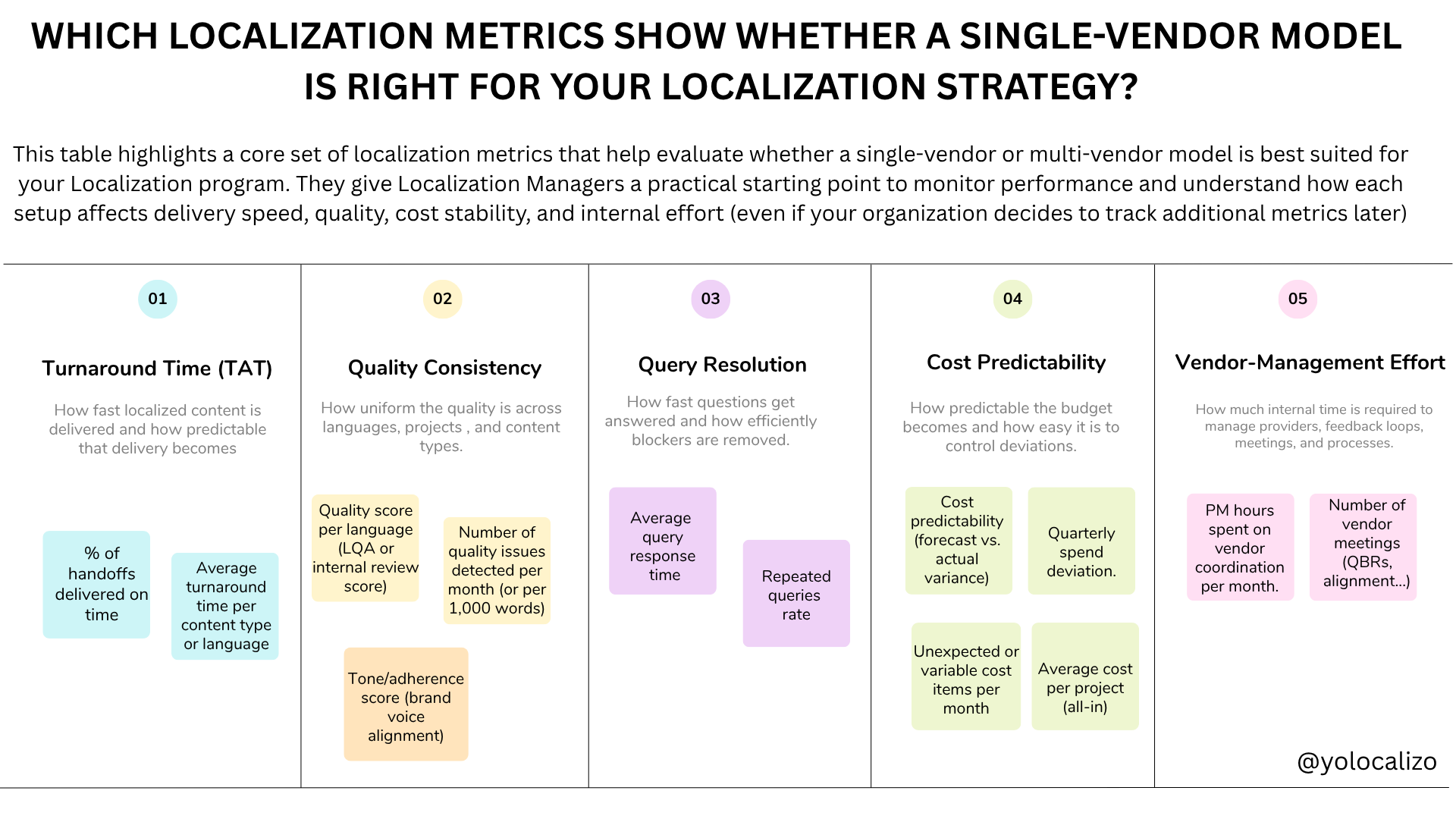






You need a solid localization tech stack before you can build a global digital product. Tools that help manage content, automate workflows, ensure consistency, handle volume, control quality, and scale across languages are essential. Without them, everything becomes slower, more expensive, and harder to manage. Today, we have great tools to support all of this. And yet, despite all these changes, something fundamental hasn’t changed in the ingredients that define good localization.